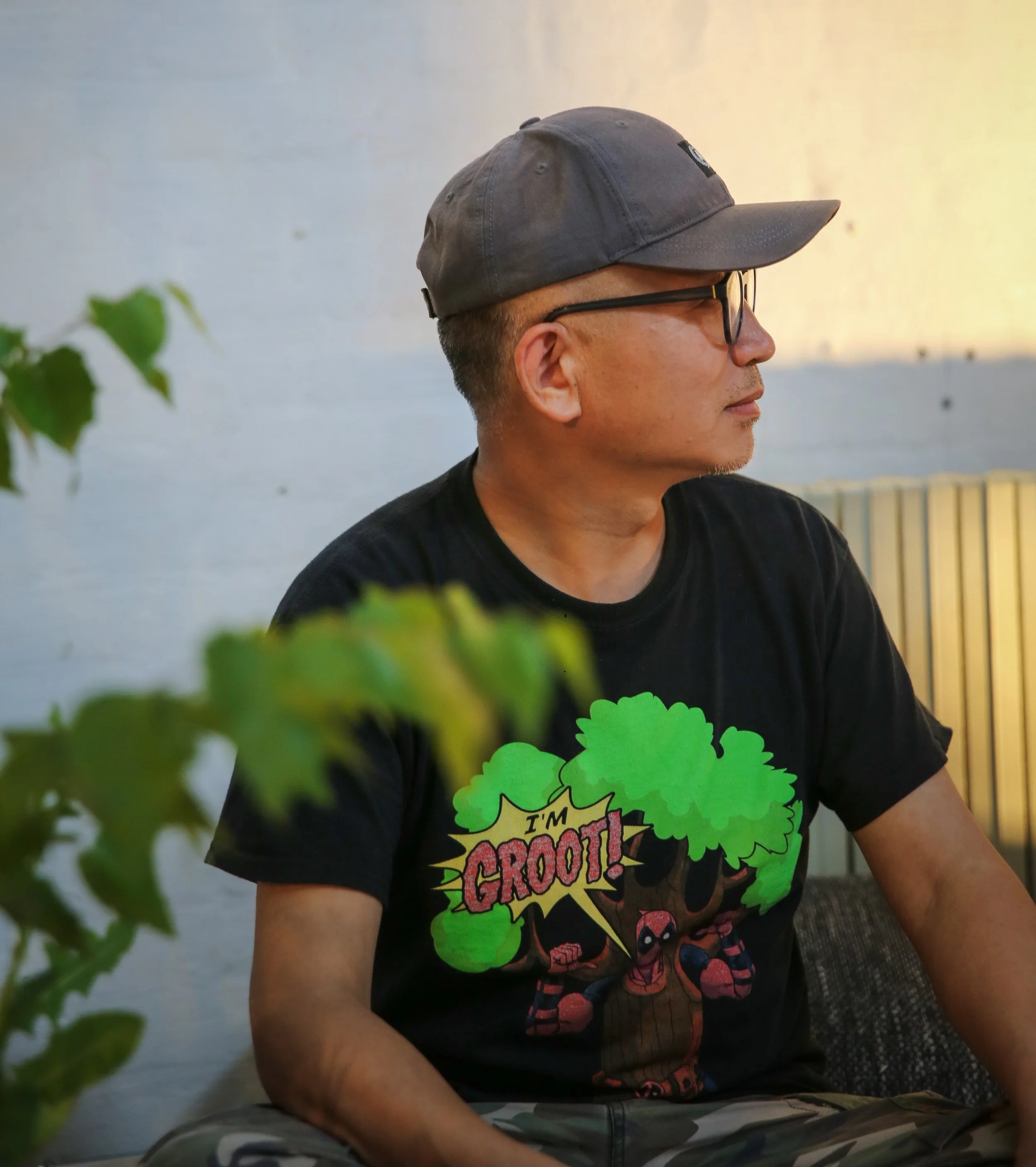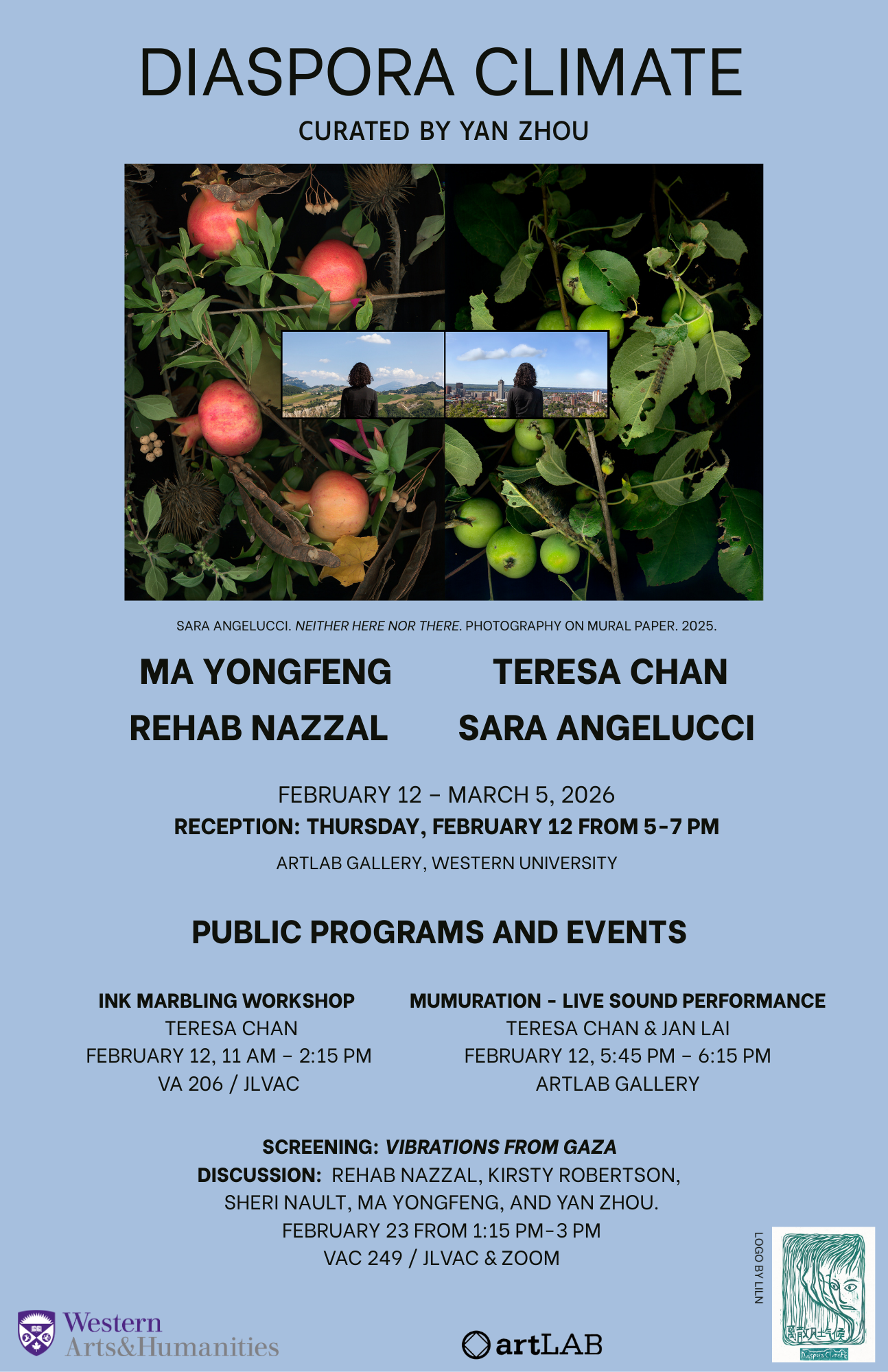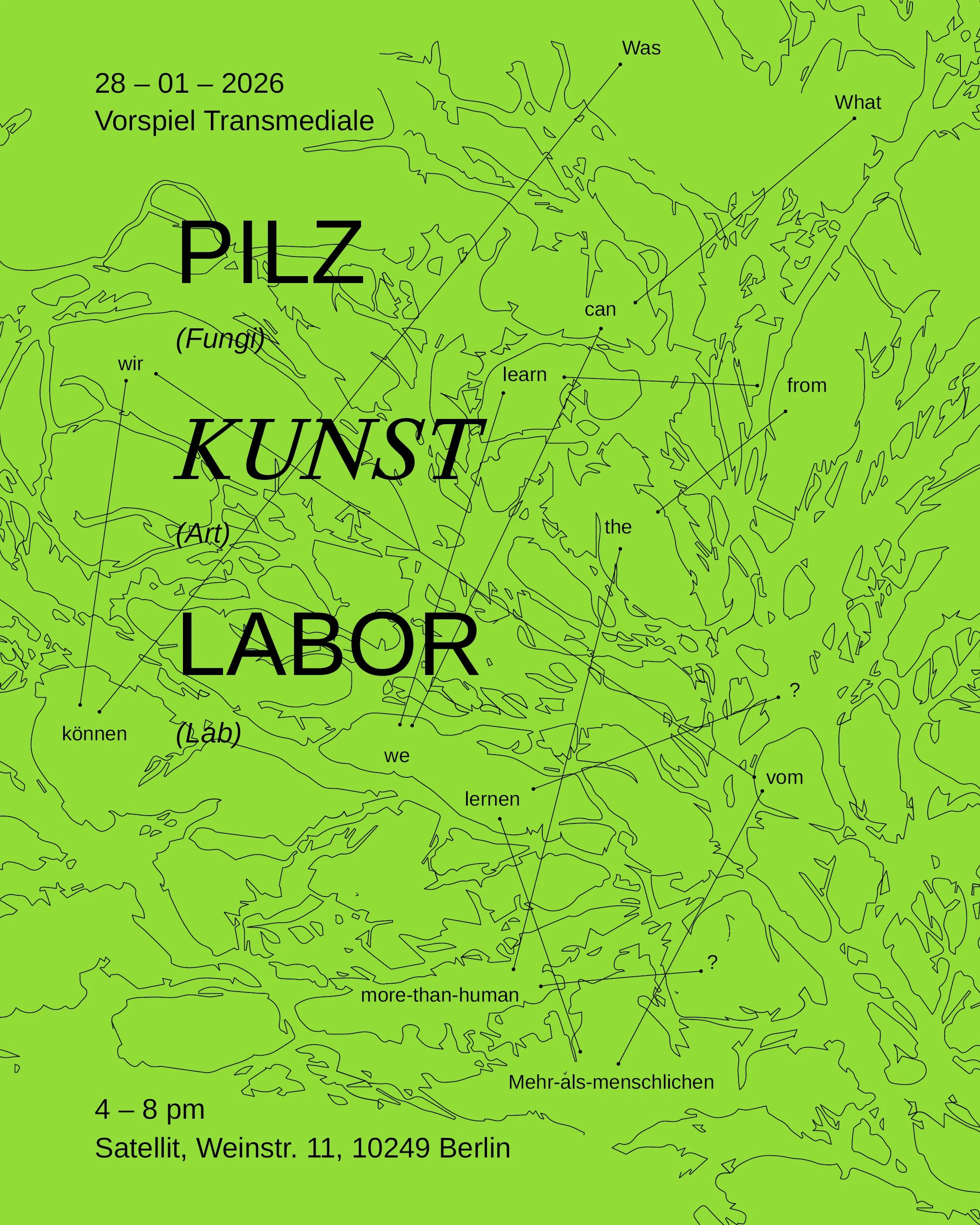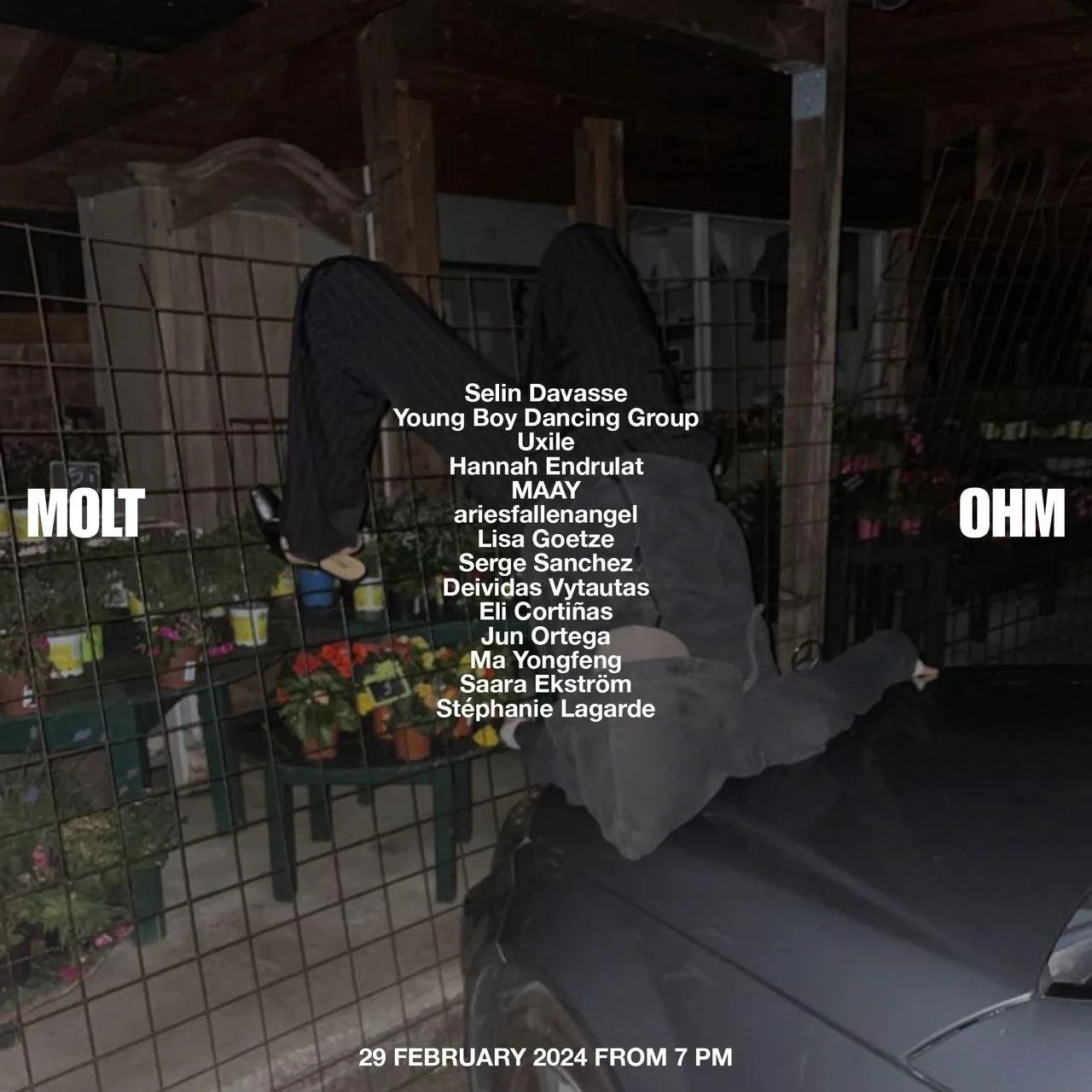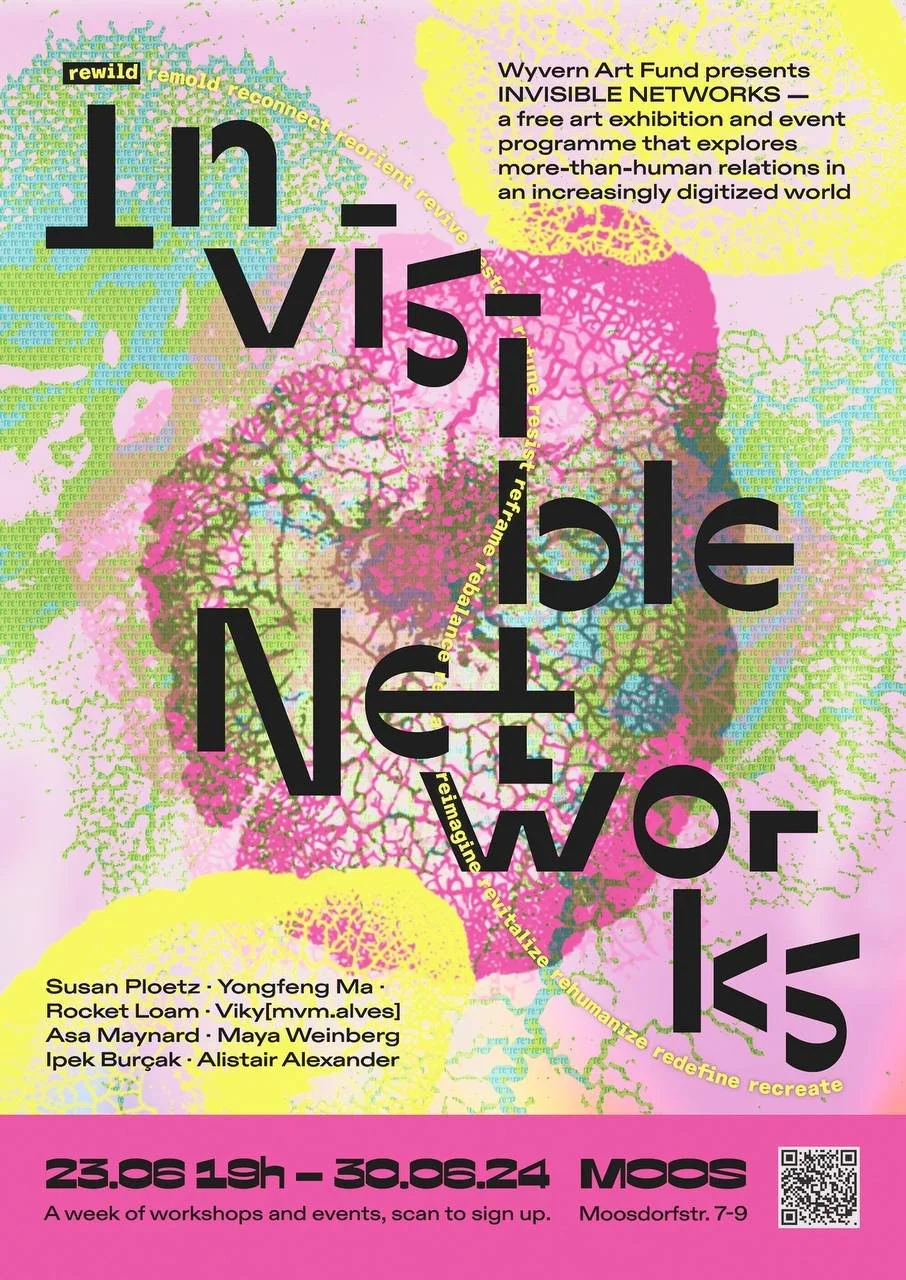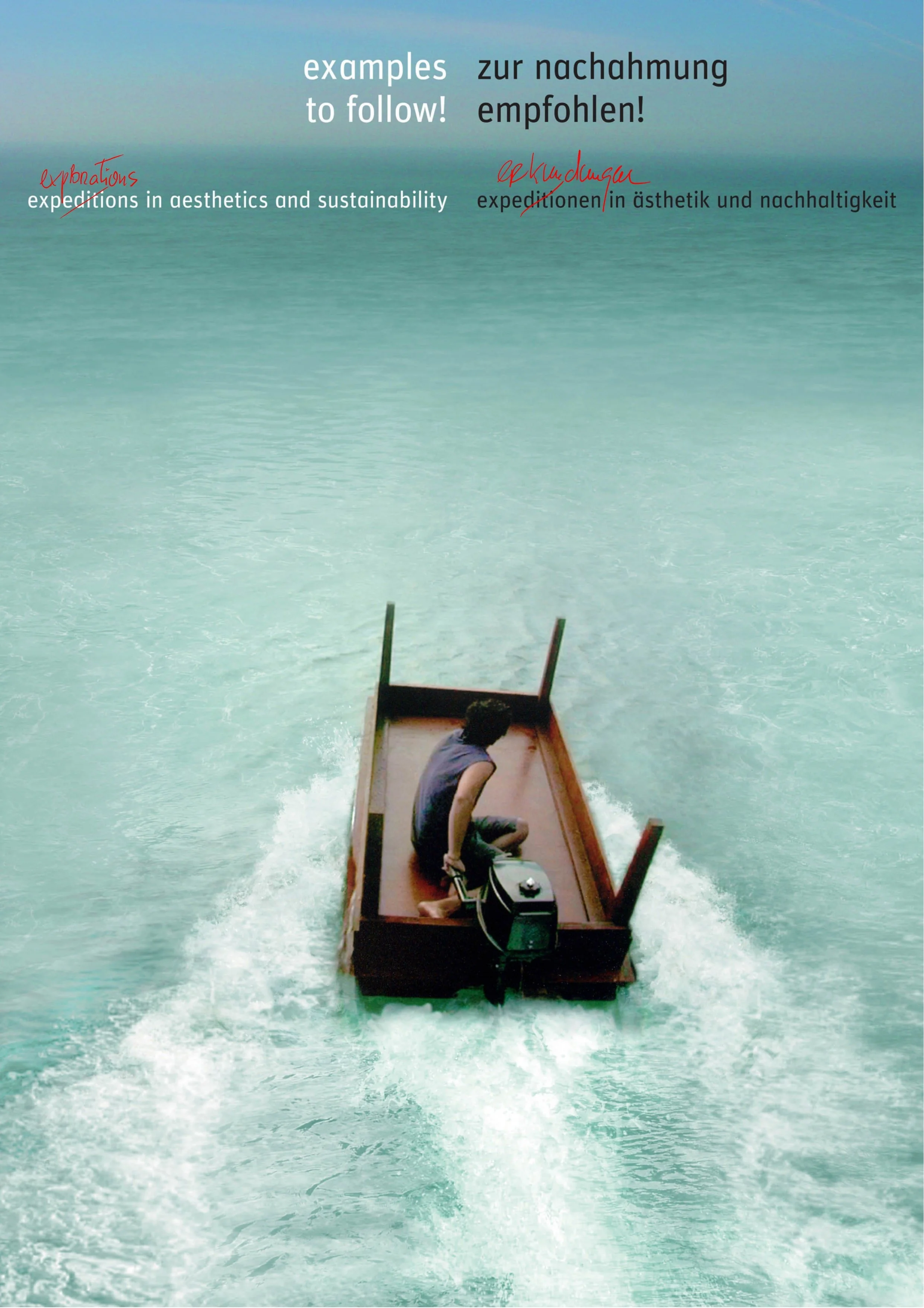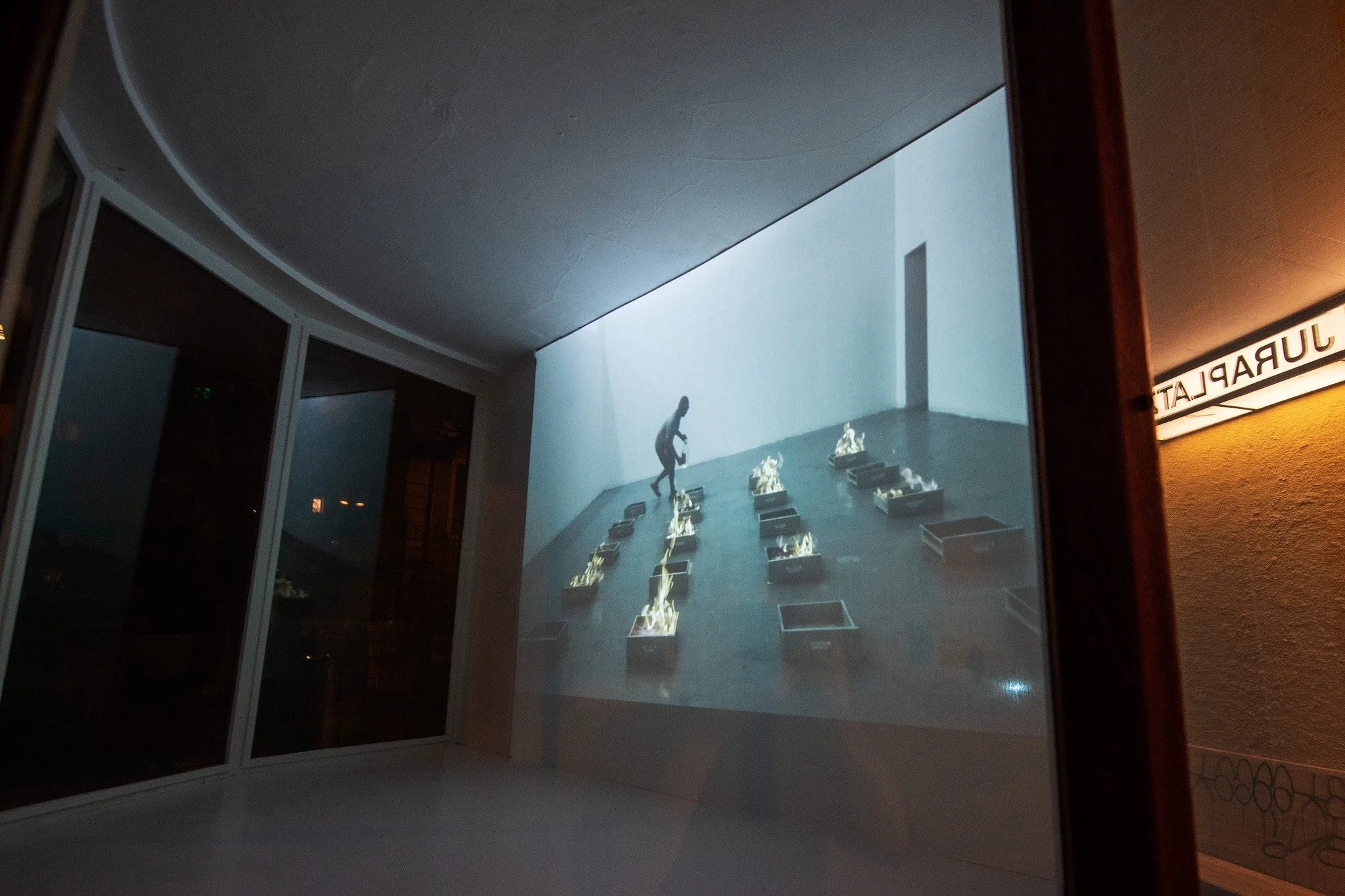Artist, Filmmaker & Curator
Ma Yongfeng is an artist, filmmaker, and curator based in Berlin. His practice spans video, film, conceptual art, socially engaged projects, and political art. He seamlessly overlaps and intertwines the roles of artist and curator, initiating a series of award-winning art projects. In recent years, his focus has shifted toward politically charged video and film, site-specific interventions, and situational works. Many of his projects incorporate flexible, guerrilla-style, and immaterial forms of social participation. His politically engaged strategies involve introducing new concepts and methodologies into existing structures through social practices and forms of relational resistance.
myfstudio@gmail.com
Diaspora Climate
Exhibition: February 12 to March 5, 2026
Reception: Thursday, February 12 from 5-7PM
Curated by Yan Zhou, 2025–26 Curator-in-Residence
Sara Angelucci
Teresa Chan
Ma Yongfeng
Rehab Nazal
Diaspora Climate is an exhibition curated by Yan Zhou, 2025–26 Curator-in-Residence in Social and Environmental Justice with the Arts in the Department of Visual Arts at Western University. The exhibition will run from February 12 to March 5, 2026, at the Artlab Gallery.
The exhibition features artworks by four artists: Sara Angelucci (Toronto), Teresa Chan (Toronto), Ma Yongfeng (Berlin), and Rehab Nazal (Bethlehem, Palestine).
In collaboration with Liza Eurich, a student-curated exhibition under Eurich's instructions responding to the theme of Diaspora Climate will be presented concurrently in Cohen Commons.
Public Programs and Events:
Ink Marbling Workshop
Led by Teresa Chan
VA 206 / JLVAC, February 12, 11:00 AM–2:15 PMMurmuration
Live Sound Performance
Teresa Chan and Jan Lai
February 12, 5:45–6:15 PM
artLAB GalleryScreening and Discussion: Rehab Nazal's documentary film Vibrations from Gaza
Participants: Rehab Nazal, Kirsty Robertson, Sheri Nault, Ma Yongfeng and Yan Zhou
February 23 from 1:15-3PM
In-person: VAC 249
Online: Zoom
Introduction of artists and exhibiting works
Diaspora Climate brings together diverse climates, cultures, languages, histories, memories, feelings, perspectives, and connections through personal experiences and artistic expressions, linking an affinity with both natural environments and cultural dispositions. Human beings are as sensitive to displacement and transplantation as plants and animals. Diaspora Climate signals the ethical and emotional bonds diasporic people hold with the climatic pressures affecting them both “here” and “there”, including struggles, suffering, and the shared fate of the world and planet Earth.
The exhibition features work by four artists: Sara Angelucci (Toronto), Teresa Chan (Toronto), Ma Yongfeng (Berlin), and Rehab Nazzal (occupied West Bank, Palestine). Their works respond to relationships with particular places, cultures, histories, climates, and environments, while also addressing ongoing afflictions of social and environmental violence, driven by brutal global capitalism, colonialism, and arbitrary state apparatuses. These forces bring wars, relentless exploitation, and the dispossession of living space and life for both nature and people, intensifying the Climate Crisis. The voices and gestures that artists share through their works are ripples of Global Diaspora Solidarity.
The Japanese word fūdo (Chinese and Japanese Kanji: 風土) is translated as “climate,” yet its meaning extends beyond meteorological conditions. It signifies the inseparable and mutually formative relationship among seasons, climate, nature, and modes of human life and sensibility in a particular place, culture, and its history. A related Chinese saying, 一方水土養一方人, expresses a similar idea: that the soil and waters of a given land nurture the distinctive dispositions of its people. In this sense, fūdo (風土氣候) is comparable to the ancient Greek concept of chōrographia, which refers to the description or mapping of a specific region or country, emphasizing local features, history, natural history, and culture, in contrast to geography, which sought to describe the world as a whole. Chōrographia suggests that the topography, natural environment, and social and political structures of a particular area are interconnected.[1] fūdo (風土氣候) is still embodied in East Asian perceptions of the world and in their aesthetic–climatic sensibilities, whereas in the modern Western world, a scientific divide tends to separate and dominate human relationships with nature.
When the modern Japanese philosopher Tetsurō Watsuji (1889–1960) brought the traditional East Asian concept of fūdo(風土) into dialogue with Western scientific notions of “climate” and “environment,” he understood climate not merely as a natural phenomenon. Rather, he argued that human existence, history, and climate are inseparable. In a climatic register, humans apprehend themselves and shape both individual and collective sensibilities. Therefore, social, cultural, and political transformation depends upon the transformation of climatic culture; as it changes, the customs and habits of a people change accordingly (移風易俗). Furthermore, Watsuji suggests that diaspora, those who have left and become distanced from their homeland, and the “other,” who does not fully belong to a given climatic culture, may grasp a climate and fūdo (風土) in a uniquely profound and nuanced way, one that is often more reflective and thought-provoking.[2]
Diaspora holds an acute and incisive political position from which to question and reinterpret the relationship between climate and culture. It activates each individual as a micro-center, responsible for addressing issues of climate change and for pursuing climate and social justice.
Diaspora refuses to be fixed to a single position. Carried on in migration and drifting, diaspora lives simultaneously inside and outside of “home” and “homelessness,” being here (displaced and adopted) and there (exiled and distanced). As writer Yōko Tawada, who writes in both Japanese and German, argues, diaspora refuses to be integrated into a dominant language and culture and denied parts of themselves, such as accent and one’s history and cultural memory. Meanwhile, diaspora also flies from the cocoon of the mother tongue and journeys into adventurous encounters with other tongues, creating new communities rather than being bound to predetermined communities or fixed identities (2025).[3]
We cannot talk about climate change or social and environmental justice without confronting the ongoing genocide and ecocide in Palestine, the environmental disaster following the Russian invasion of Ukraine, and the erasure of Indigenous communities and forests in the Amazon and elsewhere—all exemplify the devastating consequences of global environmental and social injustices.[4] In particular, I believe, we cannot talk about anything, any change, and any future, if we avoid looking at and talking about Palestine: what has been happening to its people and land under an increasingly brutal Apartheid system of genocide, ecocide, siege and elimination of eco-human life and culture, imposed by a fully techno-weaponized modern state.
Once a terrible world is born through the deprivation, exploitation, and killing of one group of people by another—as in Nazism, colonialism, Apartheid, or dictatorship—its psyche, ideology, and whole mechanism continue to evolve and contaminate the world. It therefore becomes the obligation of everyone, and particularly of critical and creative minds, to resist it and to fight for justice and the rights of every being, human and non-human, with unwavering attention and sustained effort.
We should rethink our dear and precious life and world from the position of “bare life,” which designates the victims of the violence of sovereign power who are deprived of their rights to live as full human beings in every sense.[5] The deprived, abused, and threatened cherish the precious life more deeply; they preserve and shine the light of dignity of life more radiantly; and they hold tight to the faith in justice more adamantly. They are more human, and more humanly, than the abusers and those who support, tolerate, or comply with them. They fight for life with all their means; they fight for life with life itself. They fight for humanity. The “qualified life,” secured by killing others and by imposing segregation and deprivation, is not true life. Instead, it is soulless slavery that abandons humanity and being human together with other human and nonhuman beings.
Yan Zhou
January 2026
Pilz Kunst Labor (Fungi Art Lab)
16:00 Koji as a Co-Operator : Greetings from the Mould-Based Fermentation Kitchen (Fingerfood & Drinks) Pierre Lorenz
16:30 ๓ɏƈɛʟɨǟ (Lecture Performance, 30 min) Maria Kobylenko
17:15 Art Beyond the Human: Co-Creation with Fungi (Lecture, 30 min) Elisabeth Gontov
18:15 Collaborating with Algae: A Hands-On Introduction to Biopolymers (Workshop, 60 min) Val Solari
19:15 Poetics of Mycelium (Screening, 42:05 min) Essay film by Ma Yongfeng
Everything That Rises Must Converge
Juraplatz - Place du Jura
2502 Biel/Bienne
Switzerland
Ma Yongfeng is a multimedia and socially engaged artist, as well as a social activist, currently based in Berlin. His practice spans a wide range of mediums, including photography, video, public interventions, and digital media. He is the founder of Forget Art, a decentralized, autonomous collective active in China between 2009 and 2014 and the online community channel Anarchy Hospital. Over the course of our decade-long friendship and artistic collaboration, I have observed how his practice, while constantly evolving and adapting to diverse contexts, has consistently maintained a specific conceptual framework: testing the boundaries of art in terms of usership and its potential to tactically articulate a critical impact on reality and social structures. His work leverages transformative and mimetic processes of emancipation, operating at the intersection of international socio-political and cultural contexts within digital, post-digital, and post-colonial critical frameworks.
His video work, Everything That Rises Must Converge, exemplifies his ability to generate a palpable zone of tension through a gesture that blends spontaneity with performative precision. The transformative power of this work lies in its
material exploration of change—not as a metaphorical or philosophical concept, but as an embodied process induced by autonomous behavior. In the piece, Ma methodically, yet casually, lights twenty boxes arranged in a 4x5 grid on the floor of Organhaus in Chongqing. This act transforms the gallery space into a potentially hazardous environment, one that remains seemingly under control yet charged with latent danger. The action unfolds naturally, evoking a ritualistic quality without adhering to any specific symbolic or ceremonial framework. Ma’s ordinary attire contrasts sharply with the visually striking and destabilizing device he activates, further complicating the viewer’s interpretation of his intentions.
The work begins with a minimalist aesthetic, reminiscent of codified artistic displays, but this order is gradually disrupted by the random sequence of fires. As the flames rise, the quiet severity of the initial arrangement gives way to a dynamic and entropic transformation. Ma’s performance includes moments of hesitation, as he becomes increasingly aware of the danger he has introduced—a danger that is both self-inflicted and beyond his full control. What are we witnessing? A game? A ritual? The ambiguity of the act, carried out with calm detachment, clashes with the intensity of the visual and physical transformation occurring in the space. The heat, the rising flames, and the growing tension challenge the viewer’s perception of the environment and their relationship to it. In an era defined by data-driven control, resurgent authoritarianism, and polarizing forces, what emancipatory spaces and pockets of resistance can artists still carve out through their interventions? Ma’s work does not offer definitive answers but instead deploys a tactical elusiveness to create a present and embodied tension. By maintaining fluidity and resisting direct interpretation, his installation focuses on the visceral experience of energy release through combustion, emphasizing the potential for dangerous yet transformative processes. The title of the work, Everything That Rises Must Converge, further underscores this ambiguity. While the phrase is often associated with Pierre Teilhard de Chardin, a Jesuit philosopher, and directly referenced in Flannery O’Connor’s novel of the same name, it may also evoke the Yijing (Book of Changes), with its dialectic of opposing forces and cyclical nature. Yet, Ma offers no explicit clues, leaving the interpretation open-ended.
Ma Yongfeng’s performative installation reverberates in the materiality of burning and the tension of the moving image it creates. It serves as both an alert and a warning, embodying the contradiction between its mesmerizing aesthetic and its inherent danger. The work channels a distant yet immediate source of energy—one that can be unleashed but not entirely controlled. In a time when surveillance and control permeate every aspect of daily life, Ma’s piece stands as a potent reminder of the unpredictable and transformative forces that lie just beneath the surface of our structured realities.
Alessandro Rolandi, Bern 17.01.2025
Moos Space, Moosdorfstraße 7-9, 12435 Berlin
In the digital era, we are not only sentient beings who experience life, we are also measurable units in vast, invisible networks. We have learned to see ourselves in a way that is convenient for the digital platforms to gather information. This merging of the technological and human gaze raises pivotal questions: How much are we interacting with technologies as if they are an extension of our body? How much are we sacrificing for predictability, efficiency, and productivity? How do we maintain a balance between the subjective joy of life and the efficient exchange of energy?
Wyvern Art Fund is pleased to present Invisible Networks, an exhibition and event program taking place at MOOS Space (Moosdorfstraße 7-9, 12435 Berlin) from June 23 to June 30, 2024. Invisible Networks is the culminating collective curatorial project of the Wyvern Art Fund Scholarship program, which has brought together eight artists and thinkers over four months to explore the ways that the technological gaze manifests and affects us on personal, somatic, social, and structural levels.
Participating artists include Alistair Alexander, Ipek Burçak, Rocket Loam, Asa Maynard, Viky (mvm.alves), Susan Ploetz, Maya Weinberg, and Ma Yongfeng.
The ways we see ourselves through technology also influence the ways we are able to imagine futures and relations. While exploring both the potentials and limits of technologically intermediated sensing, seeing, and knowing, Invisible Networks asks: What would it take to inspire hope and action instead of dystopian self-destruction? How can we appreciate connections with other humans, animals, and plants that are less mediated by digital interfaces? Where is our agency to decide how to interact with this evolving landscape?
Wyvern Art Fund offers financial support for artists and thinkers to work on their own projects and to co-create aesthetic experiences. As a trust-based community, Wyvern explores possible forms of togetherness through experimenting with methods and practices of autonomous and sustainable co-existence and collective curatorial practice.
Encounter: 6th Tea Oval: Anarchic Art Practices in China under AI Socialism
In the 1960s, Myanmar’s most influential scholars, politicians, activists, and artists admired China for its stability and ideology for world peace. However, Chinese long-standing support for Myanmar’s ruling Juntas, China’s influence on Myanmar’s media, and the provision of surveillance technology to the junta have raised concerns about press freedoms and human rights. The 6th Tea Oval session will explore the totalitarian state of China today, especially in its most advanced AI socialism and its severe impact, via Ma Yongfenhg, a Chinese artist and curator based in Berlin who has a deep understanding of the intersection of art, technology, and politics.
China’s ban on major international social media platforms and internet apps around 15 years ago has led to the emergence of a highly advanced AI totalitarian state. This state relies on massive data and a closely monitored algorithmic model, along with traditional authoritarian governance methods. The resulting AI socialism is a fully controlled system designed to maintain stability through algorithms, creating a blend of a futuristic cyberpunk dystopia and a digital feudalistic kingdom. Dealing with issues such as facial recognition, grid management, and crowd control in public spaces, traditional anarchic practices must urgently establish mutual aid, direct democracy, technical counterattack, and platform cooperation in the digital realm. It is not just a task but an urgent necessity for artists, hackers, and activists to prioritize reclaiming physicality as a political goal under the rule of AI socialism.
BIO
Ma Yongfeng resides in Berlin and works with video and film, conceptual art, socially engaged practices, and political art, and has realized successful art projects as a curator. Lately, his focus has been on political video and film, site-specific interventions, and situations. Some of his projects involve flexible, guerrilla, and immaterial social participation. His politically engaged tactics involve introducing new concepts and methodologies into existing mechanisms through social practices and relational resistance. His innovative approach challenges the feasibility of establishing a direct-democratic, alternative-political algorithmic model to replace the current technological oppression shaped by nation-states and multinational tech giants.
This program is supported by The Senate Department for Culture and Europe’s Weltoffenes Berlin Program
EXAMPLES TO FOLLOW!
expeditions¹ explorations in aesthetics and sustainability
Uferhallen
Uferstraße 8,
13357 Berlin-Wedding
11.05.2023 - 16.07.2023
Artists of the Berlin final
Ravi Agarwal (IND) • Marc Aldinger (D) • Jennifer Allora | Guillermo Calzadilla (USICU) • Francis Alÿs (BELIMEX • Néle Azevedo (BR) • Joseph Beuys (D) • Richard Box (GB) • Jens Burde (D) • Yaacov Chefetz (IL) • Ines Doujak (A) • Olafur Eliasson (BIDK) • Emine Ercihan (D) • Enrico Freitag (D) • Susanne Gabler (D) • Galerie für Landschaftskunst (D) • Emiliano Godoy (MEX) • Lola Göller (D) • Dionisio González (E) • Sonia Guggisberg (BR) • Swaantje Güntzel (D) • Hermann Josef Hack (D) • Ilkka Halso (FIN) • Cornelia Hesse-Honegger (CH) • Edi Hirose (PE) • Klara Hobza (CZ) • Vincent J.F. Huang (TW) • Alejandro Jaime (PE) • Martin Kaltwasser (D) • Folke Köbberling | Martin Kaltwasser (D) • Christian Kuhtz (D) • Christin Lahr (D) • Antal Lakner (HU) • Sigalit Landau (IL) • Jae Rhim Lee (KRIUS) • Till Leeser (D) • Dana Levy (IL) • Sarah Lewison (US) • Marlen Liebau | Marc Lingk (D) • Rudolf zur Lippe (D) • Ma Yongfeng (CHN) • Renzo Martens (NL) • Ayumi Matsuzaka (BIJP) • MITKUNSTZENTRALE • Lucia Monge (PE) • Manish Nai (IND) • Eliana Otta (PE) • Shirley Paes Leme (BR) • Dan Peterman (US) • Alejandra Prieto (CL) • Rebecca Raue (D) • Dodi Reifenberg (ILID) • Pedro Reyes (MEX) • Ariel Rojo (MEX) • Gustavo Romano (AR) • Michael Saup (D) • Artist Collective SCHAUM (D) • Michal Schmidt (D) • Hannah Schneider (D) • Dina Shenhav (IL) • Robert Smithson (US) • David Smithson USID) • Superflex (DK) • Jakub Szczesny (PL) • The Yes Men (US) • Maria Vedder (D) • Wang Jiuliang CHN) • Andreas Wegner (D) • Natalia Wehler (D) • Gal Weinstein (IL) • Xing Danwen (CHN) • Yang Shaobin (CHN) • Zwischenbericht (D)
New Artists:
David Brandstätter (D) • Nele-Marie Gräber (CH) • Christine Henry (PT) • Anne Duk Hee Jordan (D) • Folke Köbberling (D) • Marcus Maeder (CH) • Vera Meyer (D) • Vanessa Ramos-Velasquez (BR) • Roberto Uribe Castro (CO)
Scientists (alle D):
Dr. Norbert Höpfer • Prof. Dr. Vera Meyer • Susanne Schmitt | Cornelia Ertl • Charlett Wenig | Johanna Hehemeyer-Cürten • Dr. Manuel Rivera
EXAMPLES TO FOLLOW! ETF! will end at the very place where it started 13 years ago.
Between 2010 and today there lie many thousands of nautical miles and land kilometers of distances, four continents, many anxious hours in ports waiting because of corrupt customs clearance and late arrivals of ships. The 40-foot container has always been the unit of measurement and transport for the entire 13 years, paying attention to a reasonably acceptable ecological footprint from the start. ETF! has become a pioneer of an alternative artistic practice in terms of size, internationality, abundance of artistic approaches. At each new exhibition location we have integrated the respective artistic, scientific and environmental activist competencies, which means that the presentation is constantly changing and condensing. On the travel we showed the works of a total of 128 artists from 27 nations, currently there are still 70 works; 40 of them have been there from the beginning, others have been added in the respective countries and cities to which our explorations have led us. ETF! has made guest appearances in the capitals of Ethiopia, Peru and China, in Mumbai, Sao Paulo, Puebla, Haifa and Jerusalem. 225,000 visitors saw the exhibitions, for which we worked together with 19 project partners at 29 exhibition venues.
So on this last – analogue – station we want to sum up, deepen and discuss what we have experienced and learned so far, what of it is recommended for imitation! is and remains. In this critical and reflective view, we are accompanied by impulses and the questions of the artists and collectives, the ETF! turn off. The works of art currently address a wide range of topics: climate change, biodiversity, plastic pollution, renewable energies, fossil energies and nuclear energy, access to water, rare earths, overexploitation of and sealing of surfaces, sustainable consumption, also old cultural techniques such as the extraction of terra preta, water filtering, recycling and upcycling. In doing so, they sharpen the focus on flight, expulsion, hunger, debt (reduction) and democratization.
The exhibition has become a pioneer of a distinct artistic practice in terms of size, internationality and
richness of artistic methods. At every venue, the particularities of the respective artistic, scientific and environmental activist knowledges were integrated. As a result, the presentation became more condensed. Each piece already existed and was not just created for a single occasion but was contextualized anew at every single venue. This, too, was and is a sustainable statement against the fast-moving nature of the art market and the short-sightedness of funding practices. Principles of action ETF!
Since ETF!’s started 13 years ago, the preoccupation with the climate disaster, dwindling resources, shrinking biodiversity and actions addressing them has increased significantly in the arts as well as in the political sphere. Lately we can observe artistic institutions implementing gezillion little measures making the institution ecological efficient. However, these measures are only addressing the institutions itself and are not supporting artists engaging with the environmental disaster.
ETF! on the contrary, focused from day one on expanding the individual artistic resonance space, interfering with transformative fields – from urban to material development, from climate theatre to sustainable exhibition concepts – using the means of art, and expanding social perception and imagination for transformation.
In keeping with the principle of the exhibition, further – already existing – artistic positions will be added in the Berlin exhibition integrating the local perspectives and knowledges.
This last venue shows 68 of the artistic positions assembled so far. The chronicle of this journey can be wandered on three Litfass-columns; in the hall hang thoughts that were asked of all 128 artists about what ETF! was and is for them, processed by the artist Nele-Marie Gräber.
We are drawing from the reservoir of voices for a fund of aesthetics and sustainability | FAeS as a basis for workshops, panels and lectures.
The boundaries between art, research and invention become blurred in the experimental arrange-ments of the artists, their inventions and interventions, their architectural and aesthetic reflections. Many of the artistic positions use science and technology for their emergence, while others criticise precisely these. The works revolve around the big and the existential questions of our present times- and all of them provoke and request individual action.
The dramatic changes in our living conditions require the cooperation of the various social forces. It is about preserving, visualising, consciously shaping life, about the active engagement of human beings with their own and the surrounding nature.
We need new ways of thinking, moving and organising to be able to tackle the challenges of our present. This requires permeability and alliances between the arts, sciences, activism and participatory processes. And cooperation projects with an economy that is willing to change.
At the end of the Berlin exhibition ETF!will continue to live on digitally as the pioneering exhibition
it is through an openly accessible virtual tour. Sustainability does not mean to reinvent the wheel over and over again but to recognize on whose shoulders we stand
ETF! shows the relevance of artistic questions for the genuinely cultural challenges of global dislocation and relies on the transformative power of art, on its imaginative capacity as one of its inexhaustible resources.
For the radical transformation, we need the permeability of artistic, scientific and the knowledges of social movements; this requires leaving the silos of art, culture and science, which stand disconnected next to the other silos. We need to think bigger in terms of cultural policy. And we need visions for a sustainable life that can be combined with sensuality, the desire and passion of one’s own actions.
Im Rahmen von NO ONE IS AN ISLAND,
der interkontinentalen Ausstellungs- und Projektreihe der HALLE 6 freuen wir uns die Künstler xindi, Kumi Usui, Ma Yongfeng aus China
und Alfred Kurz begrüssen zu dürfen...
Folgende Termine sind:
12. mai 2023 - 19 Uhr
Präsentation des
Internationalen Hauses der Künstler*innen
Begrüßung der ersten Resident*innen
aus China durch Christian Schnurer
und Alfred Kurz
19. mai 2023 - 19 Uhr
Screening und online Panel:
#ORGANHAUS – ART SPACE, #Chongqing, China
Moderation Alfred Kurz
25. mai 2023 - 19 Uhr
Eröffnung der dritten Ausstellung
CHINA
mit den Künstler*Innen:
